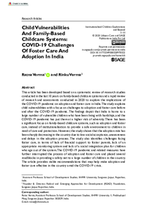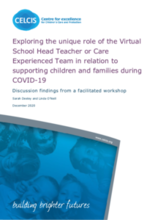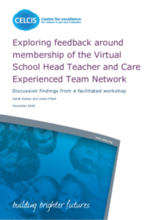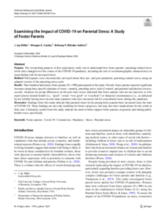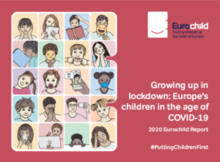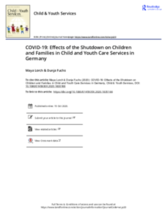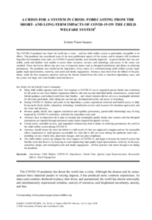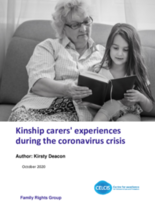This section includes resources and tools related to alternative care during the COVID-19 pandemic.
Displaying 51 - 60 of 185
Disability Rights International, Validity Foundation, and the European Network for Independent Living, Youth Network Board hosted a webinar on children with disabilities in adversity as part of the Conference of States Parties to the UN Convention on the Rights of Persons with Disabilities.
This article has been developed based on a systematic review of research studies conducted in the last 10 years on family-based childcare systems and a rapid review of research and assessments conducted in 2020 to explore the implications of the COVID-19 pandemic on adoption and foster care in India.
In October 2020 CELCIS convened and facilitated a virtual workshop with the Virtual School Head Teacher (VSHT) and Care Experienced Team (CET) network. Network members were asked two questions for consideration prior to the meeting. This document contains the key themes arising from question one: Why did having your specific role within your local authority make a difference to care experienced children and young people during lockdown?
In October 2020 CELCIS convened and facilitated a virtual workshop with the Virtual School Head Teacher (VSHT) and Care Experienced Team (CET) network. Network members were asked two questions for consideration prior to the meeting. This document contains the key themes arising from question two: Did the VSHT/CET network have an impact on supporting you in your role during lockdown? What, if any, impact did being part of the network have for the children and young people that you have responsibility for?
This paper aims to describe how a sense of normalcy for young people in foster care can be critical to their well-being.
The overarching purpose of this exploratory study was to understand how foster parents’ parenting-related stress levels have changed over the course of the COVID-19 pandemic, including the role of sociodemographic characteristics in exacerbating risk for increased stress.
This report reflects on the effects of the coronavirus pandemic on children. It compiles information gathered from 25 countries across Europe, and provides recommendations for improving public policies in the short and long-term to support better outcomes for children and families, including children in alternative care or at risk of separation.
In this article, the authors describe the short and long term ramifications of the pandemic for children and youth living in their residential programs in Germany under the auspices of municipal child and youth services.
This article calls on attorneys in the U.S. to learn from the fallout of the pandemic, retain the best responsive practices, and use the lessons learned from this crisis to transform dependency cases, and the child welfare system writ large, into what families need and deserve.
A survey was administered to develop a better understanding of the experiences of kinship care households in the UK as a result of the Coronavirus crisis, and what urgent steps could be taken by Government, local authorities and other agencies to help. This supplementary report provides an in-depth analysis of the kinship carers in Scotland and provides the legal context to influence national and local kinship care policies, practices and services of local authorities and other public agencies.

